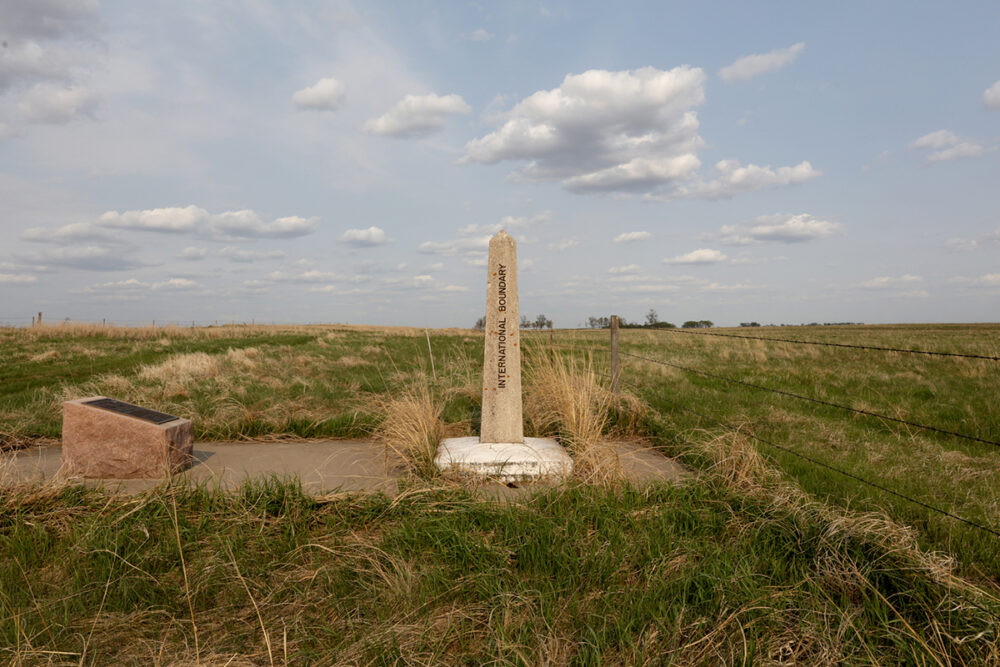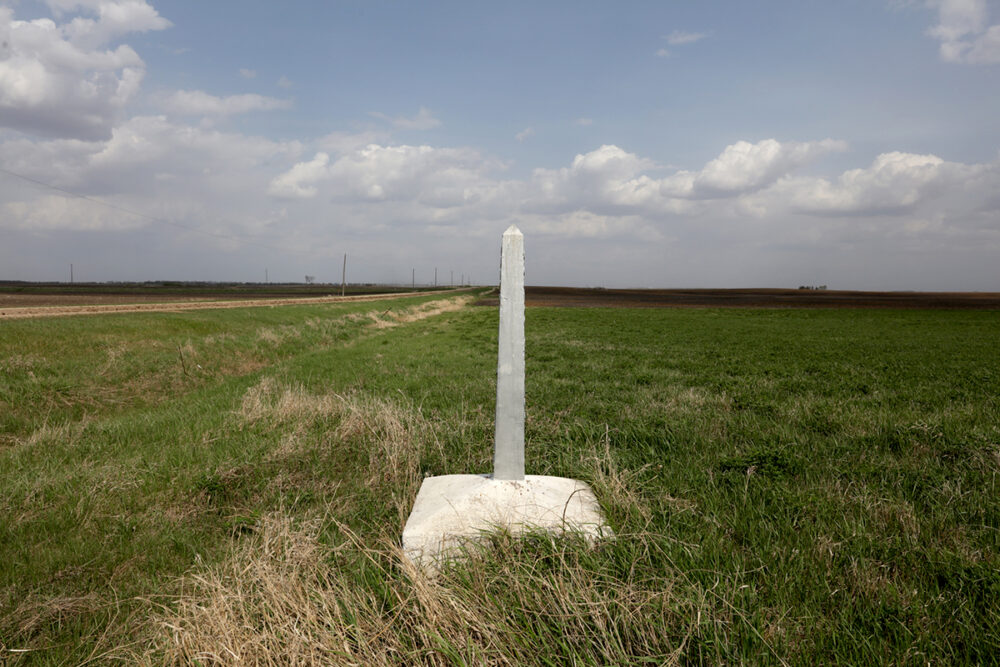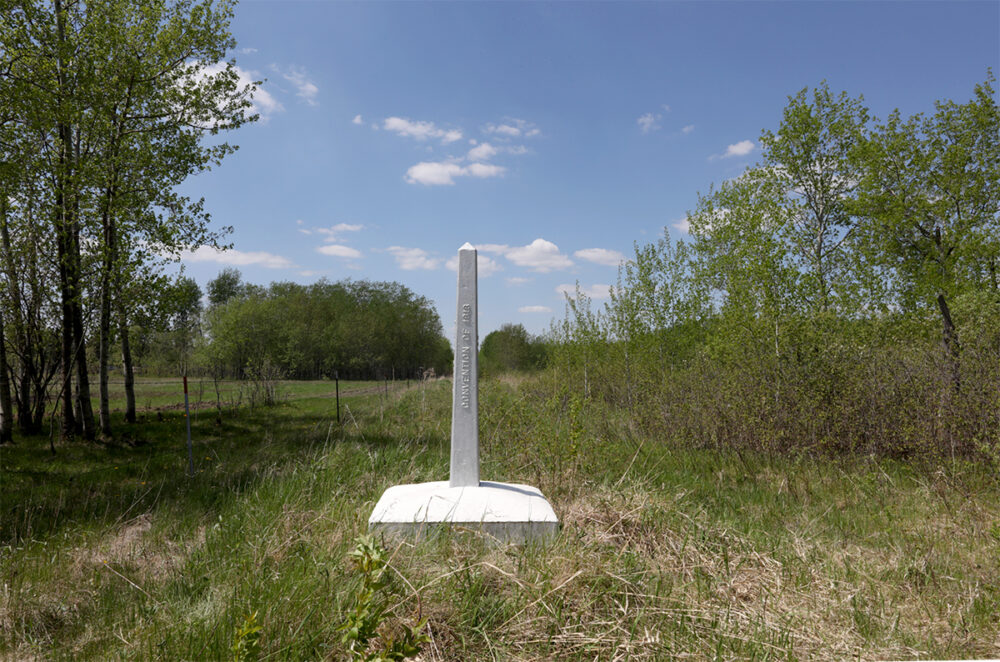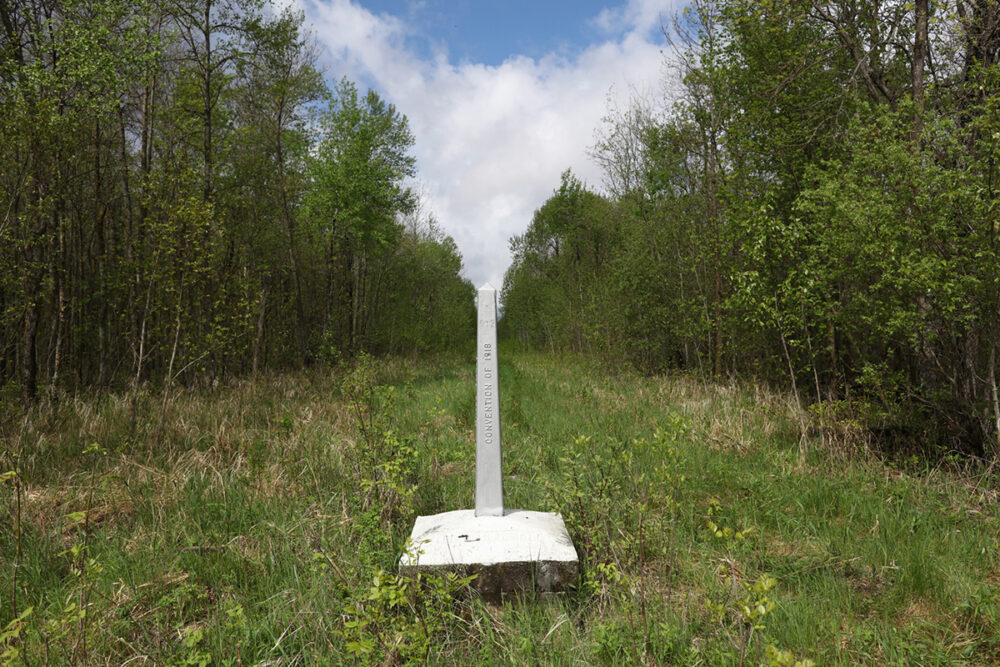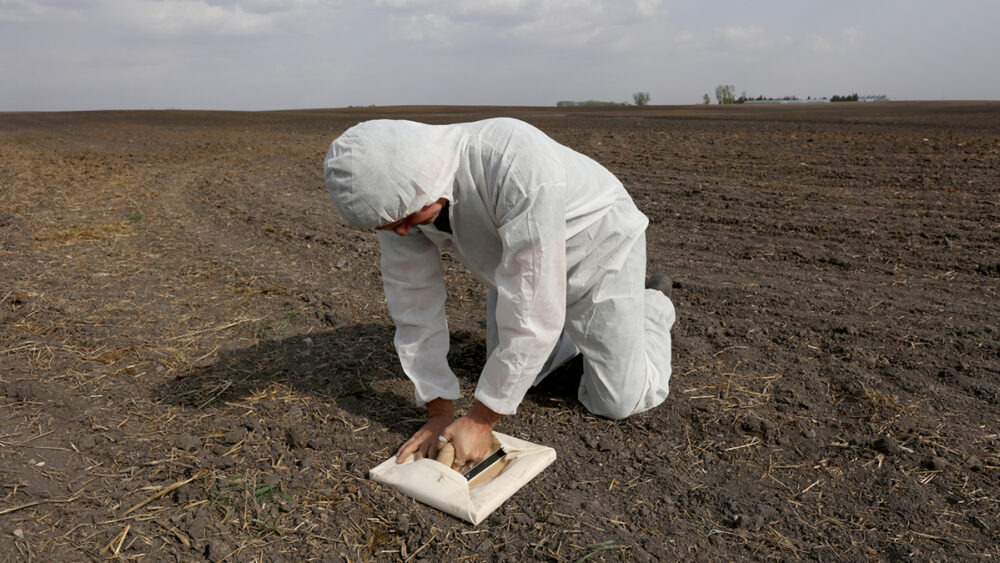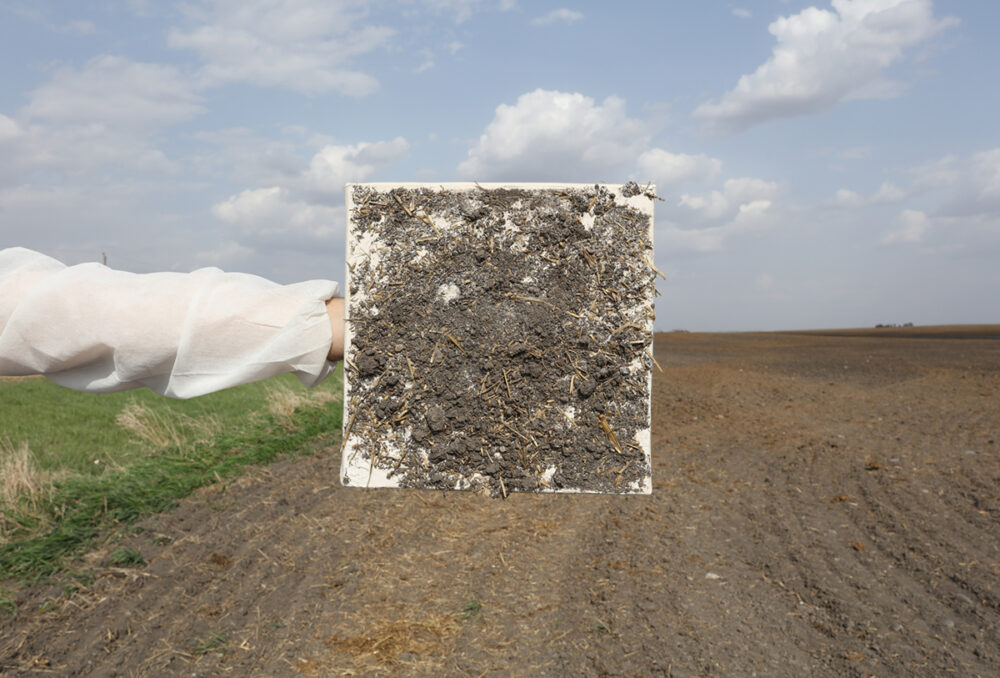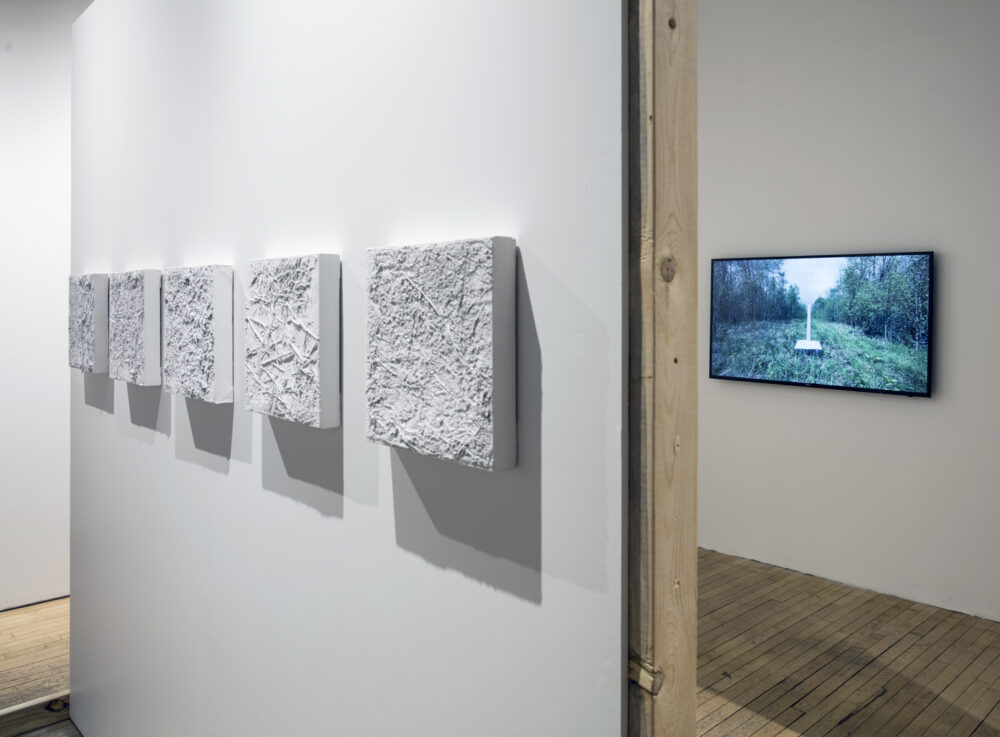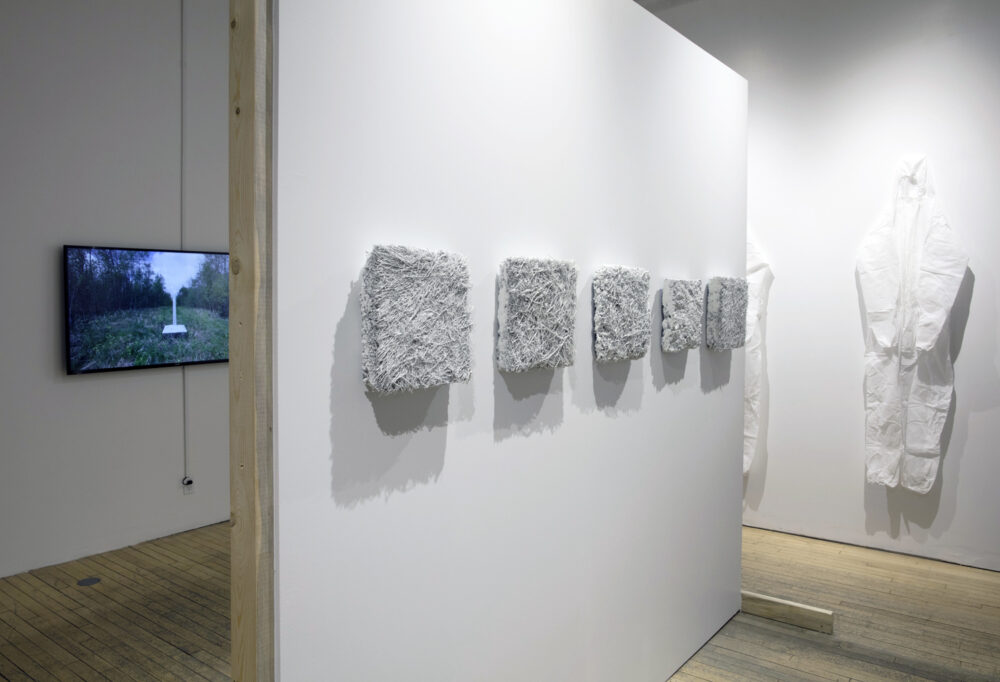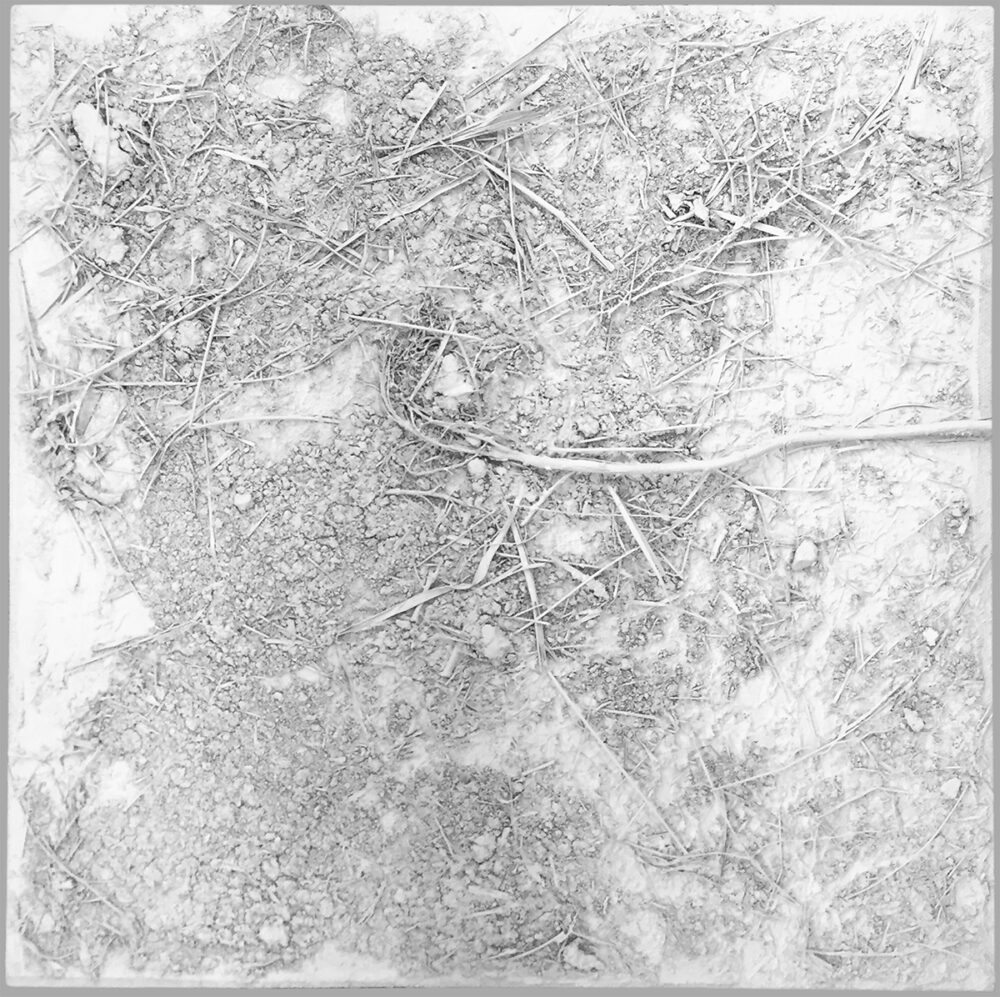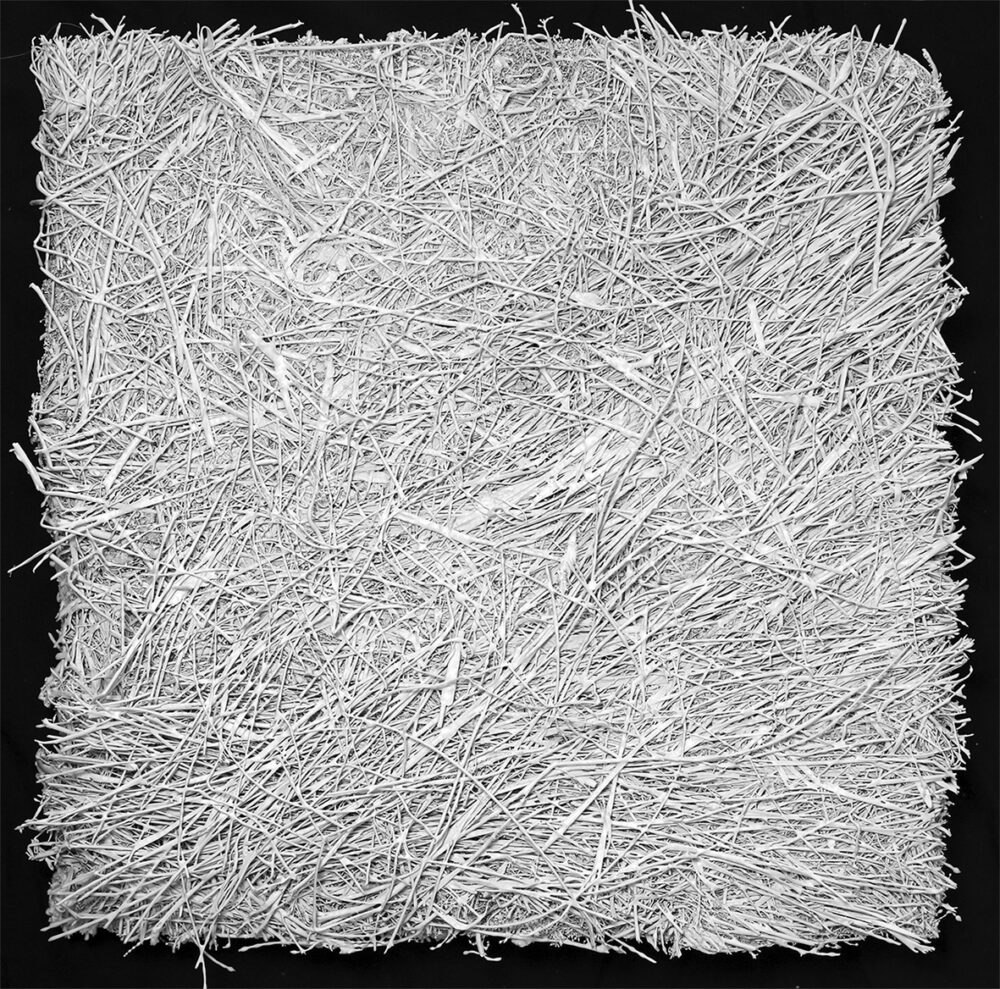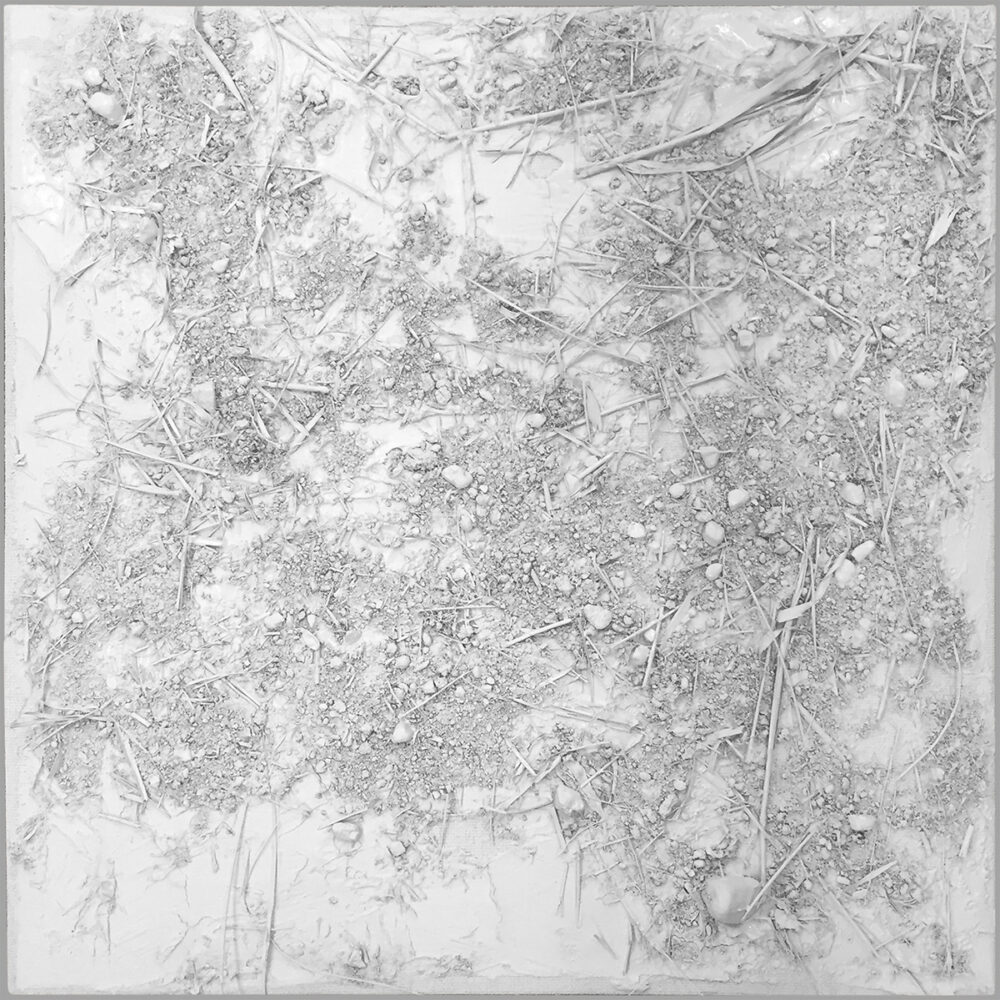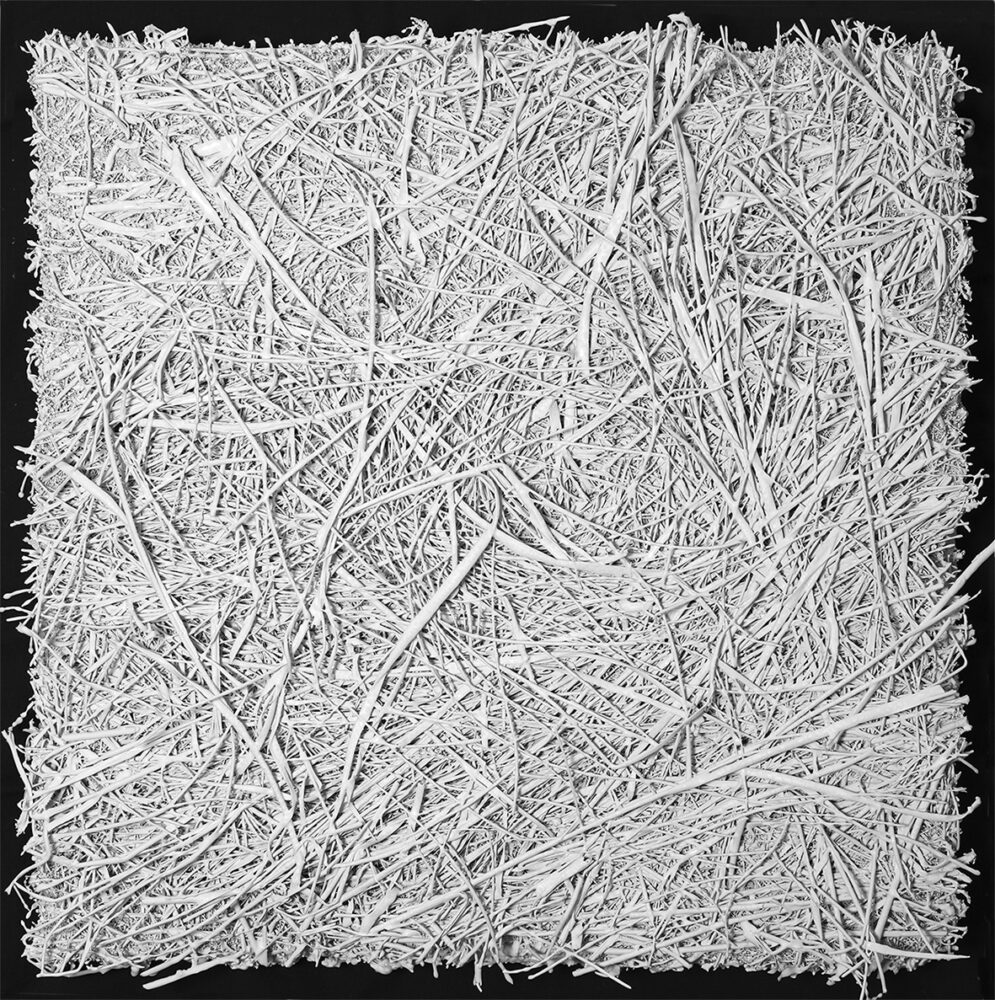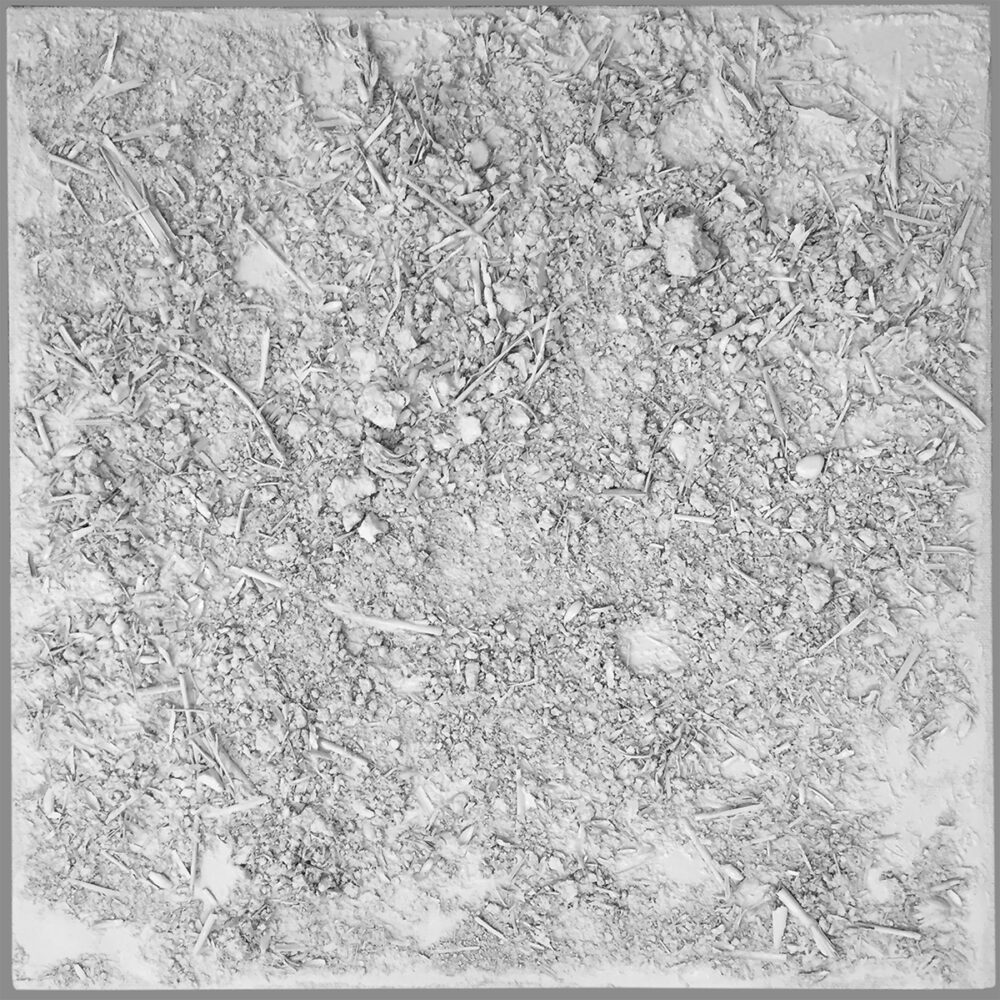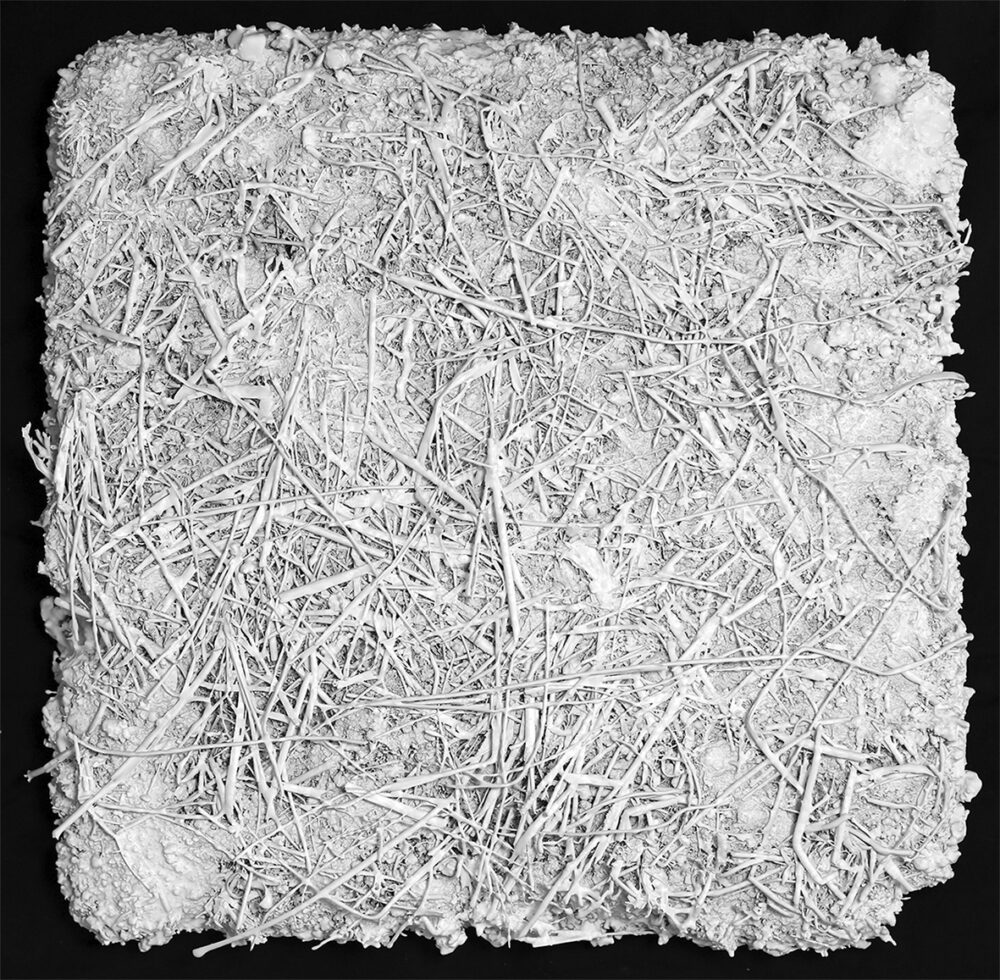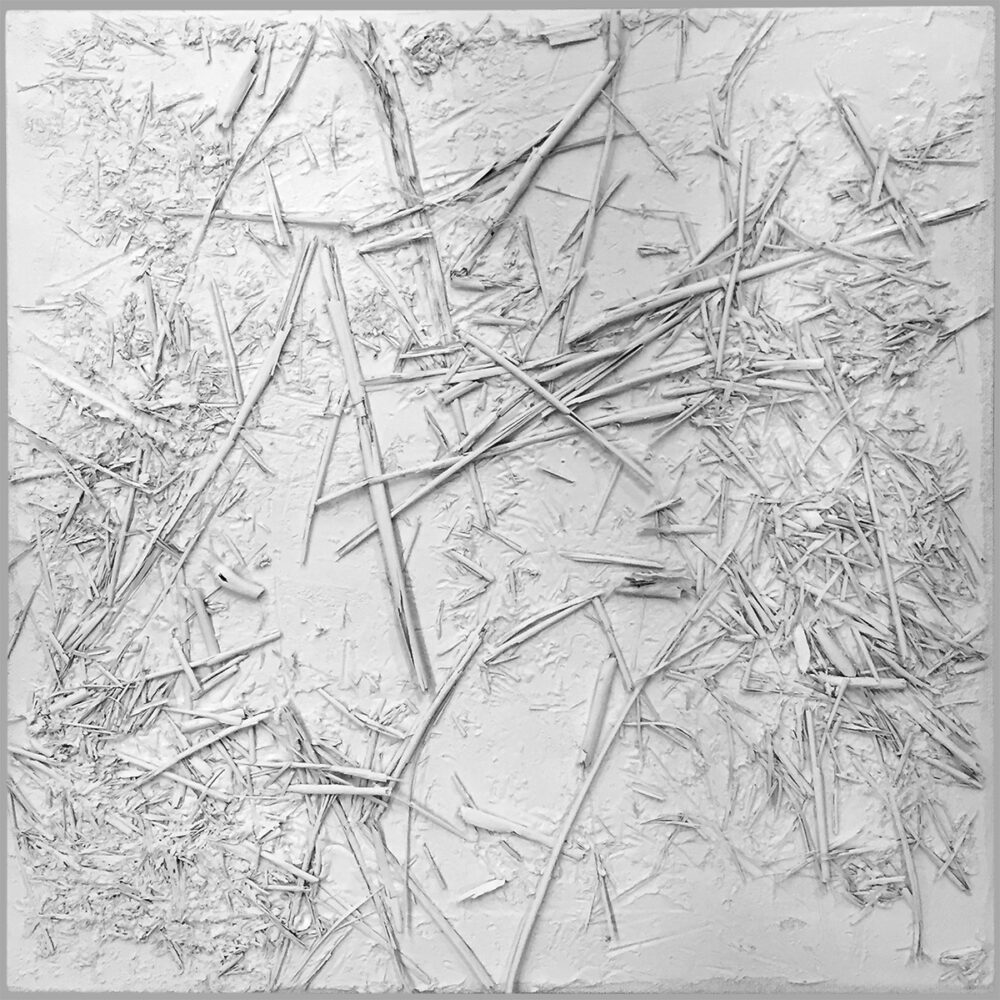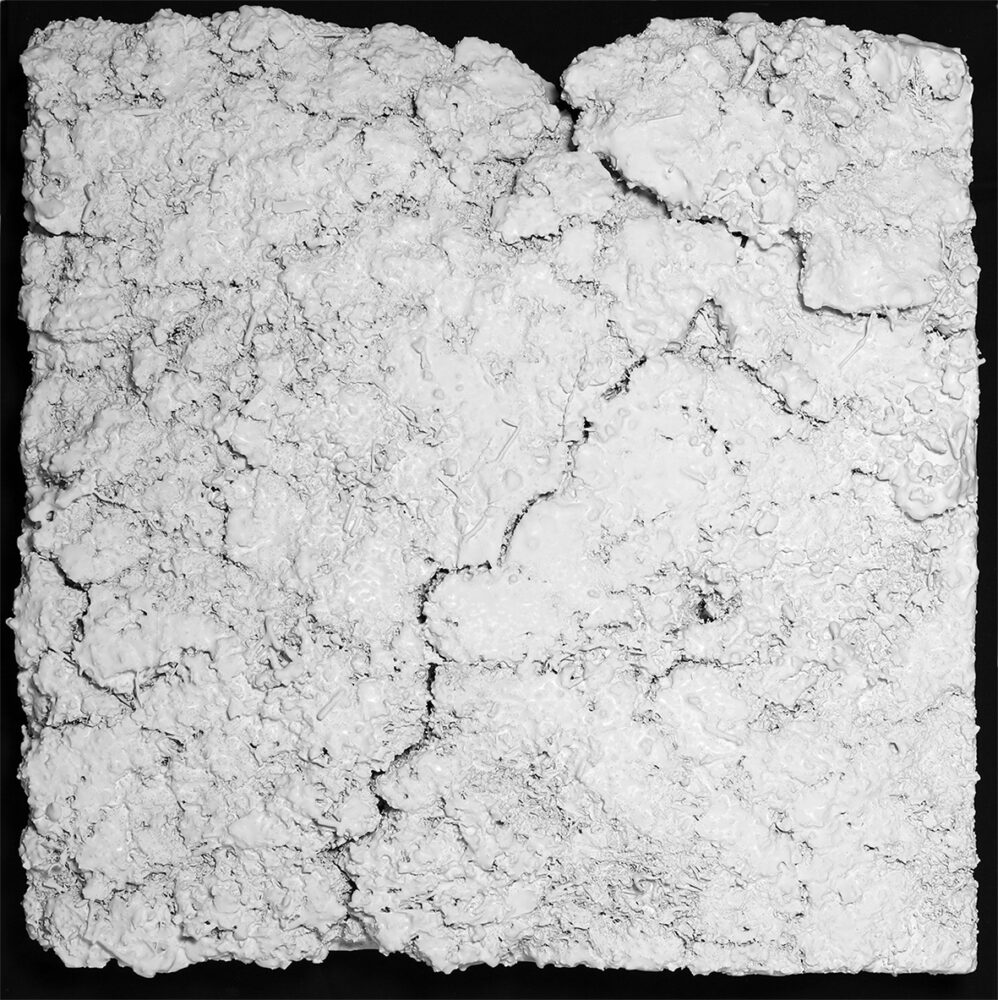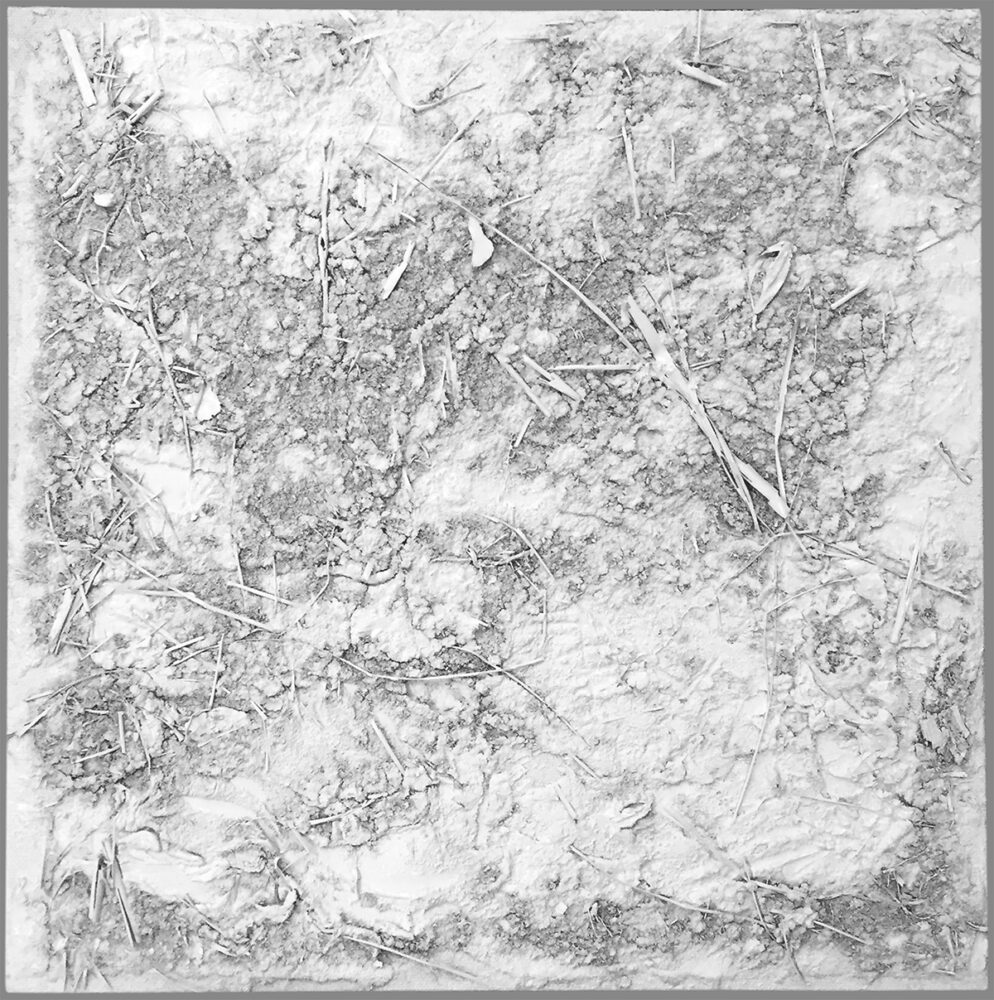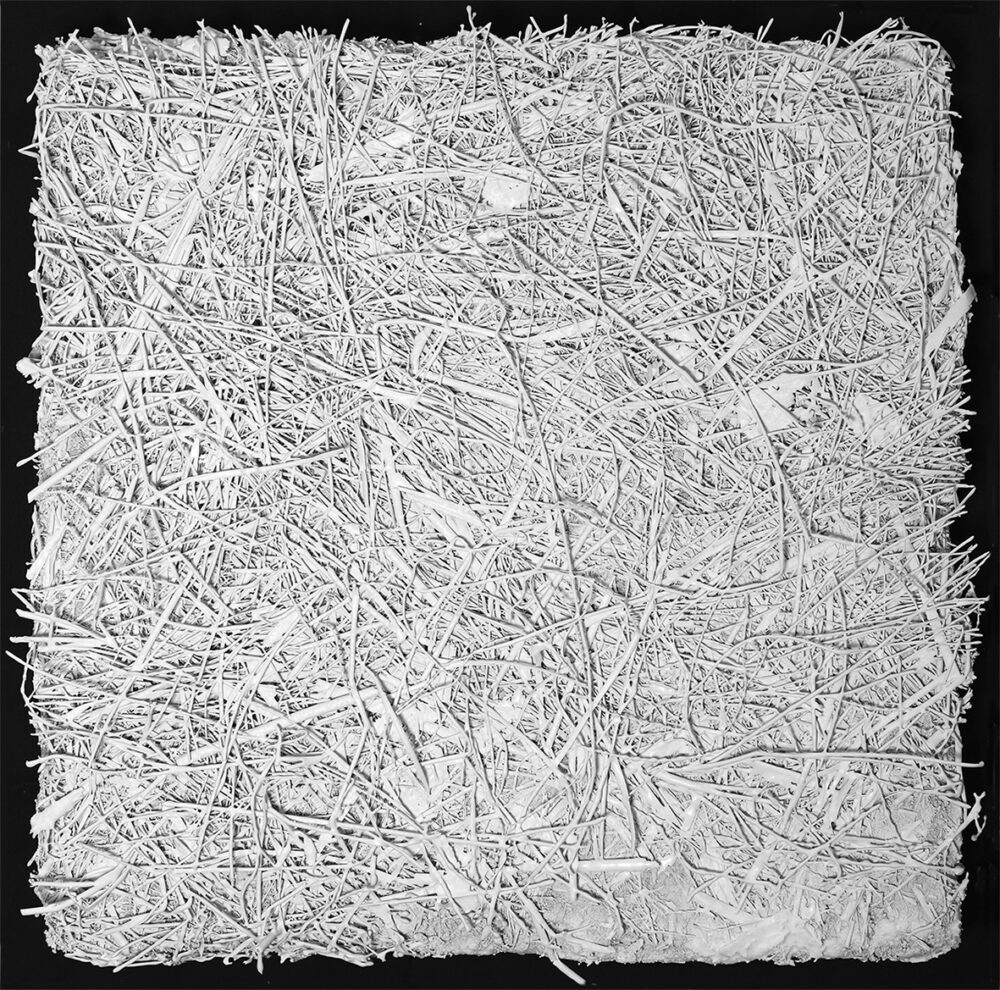FOLLOW THE LINE, 2016
Projet mené sur la ligne frontière entre le Canada et les États-Unis.
NO MAN’S LAND, 2018
Exposition au Video Pool Media Centre, Winnipeg, Manitoba, Canada
www.videopool.org
FOLLOW THE LINE – NO MAN’S LAND concerne la zone frontière entre le Canada et les États-Unis. Nous avons parcouru ce no man’s land linéaire de 6 mètres sur 444 km qui sépare le Manitoba de deux états américains : le Dakota du Nord et le Minnesota.
Nous y sommes intervenus en prélevant des échantillons de deux façons distinctes :
– Cinq extractions de 1 pied carré de terrain sur une profondeur de 2.5 pouces.
– Cinq empreintes au sol à l’aide d’une toile de 1 pied carré tendue sur bois et enduite d’un liant acrylique. Des éléments naturels (terre, cailloux, végétaux) ont ainsi été fixés et recueillis.
Des prises de vues vidéo et photographiques ont été réalisées sur les sites et lors des prélèvements. La présence répétée de bornes frontières sert de repère visuel. La première borne filmée marque le coin formé par la Saskatchewan, le Manitoba et le Dakota du Nord. La dernière se trouve à l’extrémité orientale du Manitoba, là où la ligne frontière se termine dans les eaux du lac des Bois (Lake of the Woods).
Remerciements : Conseil des arts et des lettres du Québec, Video Pool Media Arts Centre.
FOLLOW THE LINE, 2016
Project carried out on the border line between Canada and the United States.
NO MAN’S LAND, 2018
Exhibition at the Video Pool Media Arts Centre, Winnipeg, Manitoba, Canada.
www.videopool.org
FOLLOW THE LINE – NO MAN’S LAND is about the border area between Canada and the United States. We traveled this linear no man’s land of 6 meters by 444 kilometers which separates Manitoba from two American states: North Dakota and Minnesota.
We intervened by taking samples in two distinct ways:
– Five extractions of 1 square foot of land to a depth of 2.5 inches.
– Five prints of the ground using 1 square foot canvas stretched over wood and coated with an acrylic binder. Natural elements (earth, pebbles, plants) were thus fixed and collected.
Video and photographic shots were taken on the sites and during the sampling. The repeated presence of boundary monuments serves as a visual cue. The first monument filmed marks the corner formed by Saskatchewan, Manitoba and North Dakota. The last is at the eastern end of Manitoba, where the boundary line ends in the waters of Lake of the Woods.
Aknowlegments: Conseil des arts et des lettres du Québec, Video Pool Media Arts Centre.

